Remember the thrill of a new catalogue arriving in the post? The glossy pages, the promise of new gadgets and toys, the endless possibilities. For many of us, these hefty tomes were a cherished part of growing up. They offered a window into a world of consumer dreams and youthful desires. From circling must-have Christmas gifts to daydreaming about the latest fashions, mail order catalogues were more than just shopping guides – they were gateways to imagination. I remember dog-earring pages, circling items in pencil that I desperately wanted, and picturing myself in those cozy homes and fun-looking rooms.
Argos
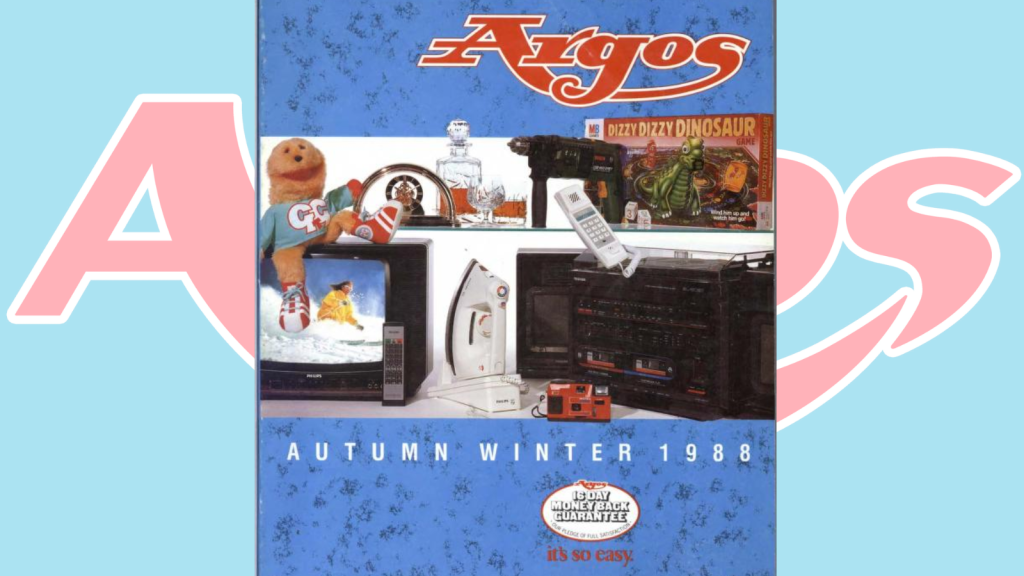
The king of catalogues, Argos was a staple in British homes. With its iconic laminated pages and tiny pencils, it was a treasure trove of everything from jewellery to garden furniture. Who can forget the excitement of flipping to the toy section or the pride of finally being old enough to use the grown-up catalogue? Argos introduced its revolutionary “Buy Now, Collect in Store” service in 1979, changing the face of British retail forever.
Kays
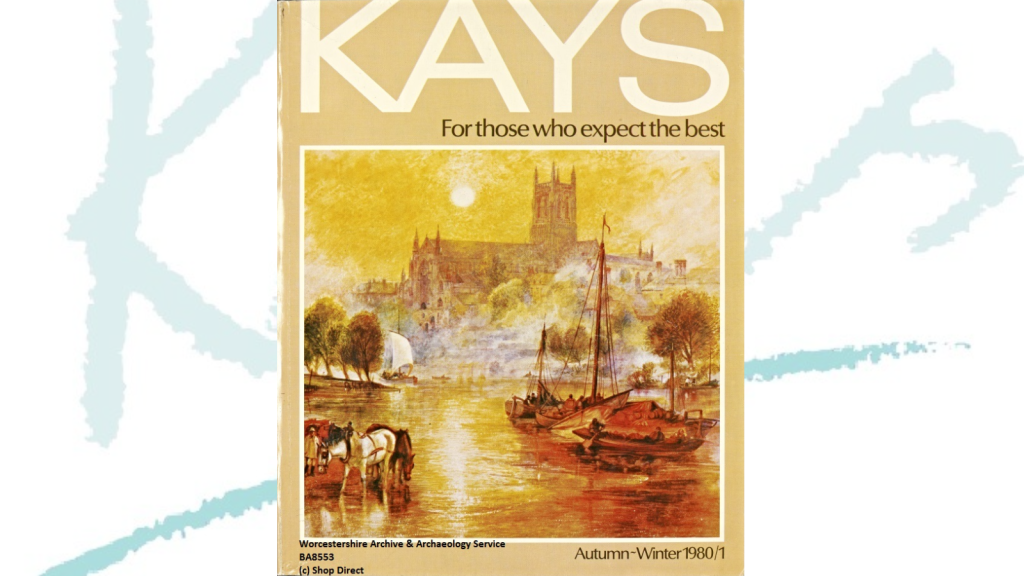
A true British institution, Kays catalogue was like having a department store delivered to your doorstep. It offered an extensive range of products, from the latest fashions to household essentials. Many families eagerly awaited the arrival of the new Kays catalogue each season. Founded in Worcester in 1890, Kays was one of the oldest mail order companies in the UK, with a history spanning over 120 years.
Littlewoods
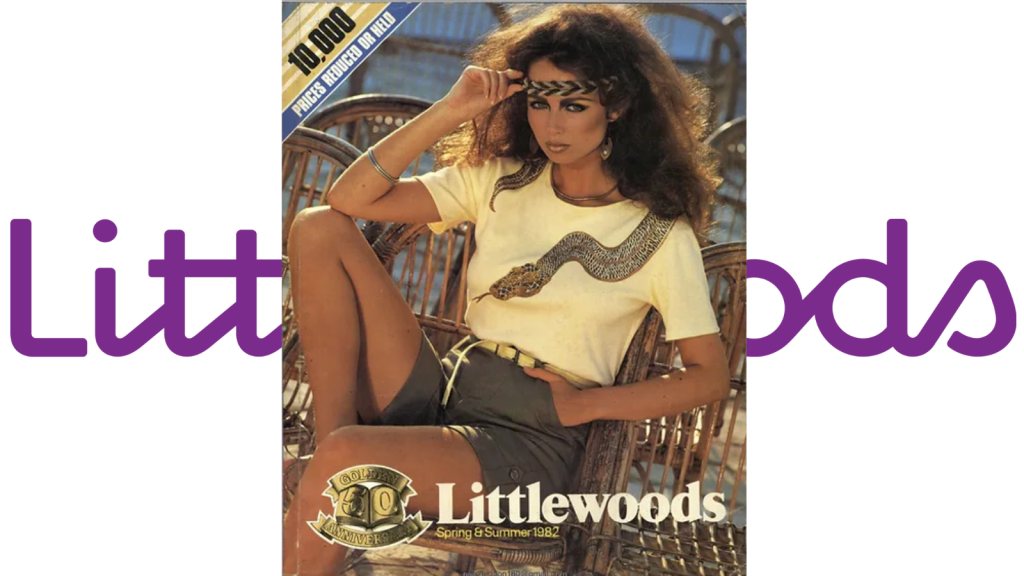
Littlewoods was a household name, known for its wide selection of clothing, homewares, and electricals. The catalogue’s fashion pages were particularly popular, showcasing the latest trends and inspiring many a makeover. It was a go-to for many shoppers looking for affordable style. Littlewoods also pioneered the concept of buying on credit in the UK, introducing their “Littlewoods Easy Terms” in the 1930s.
Index
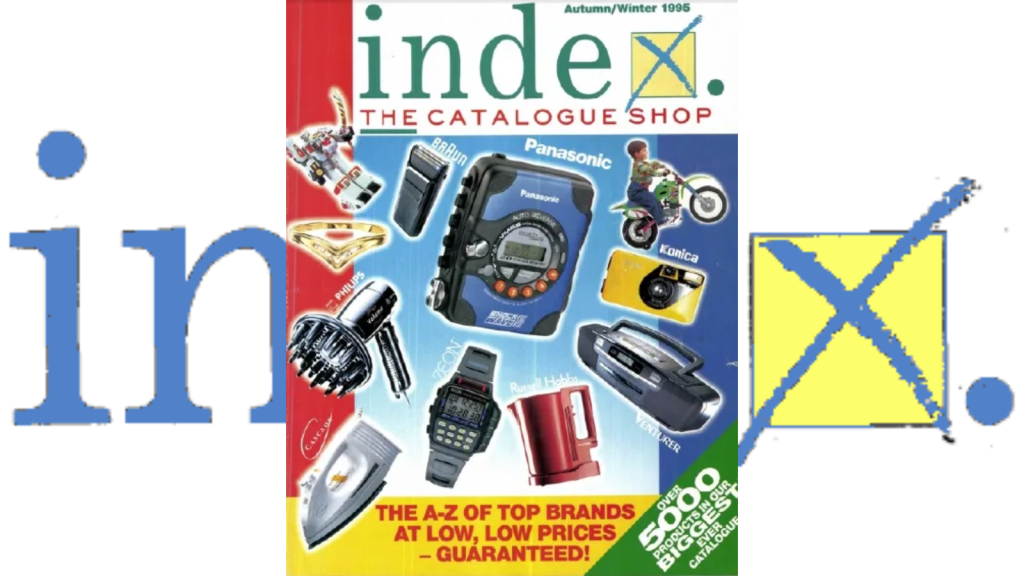
Remember Index? This Littlewoods spin-off was a hit in the 80s and 90s. It focused on trendy clothing and homewares, often featuring celebrity endorsements. The catalogue’s youthful vibe made it a favorite among teens and young adults looking for the latest fashion must-haves. Index stores were known for their distinctive yellow and black branding, which became a familiar sight on British high streets.
Grattan
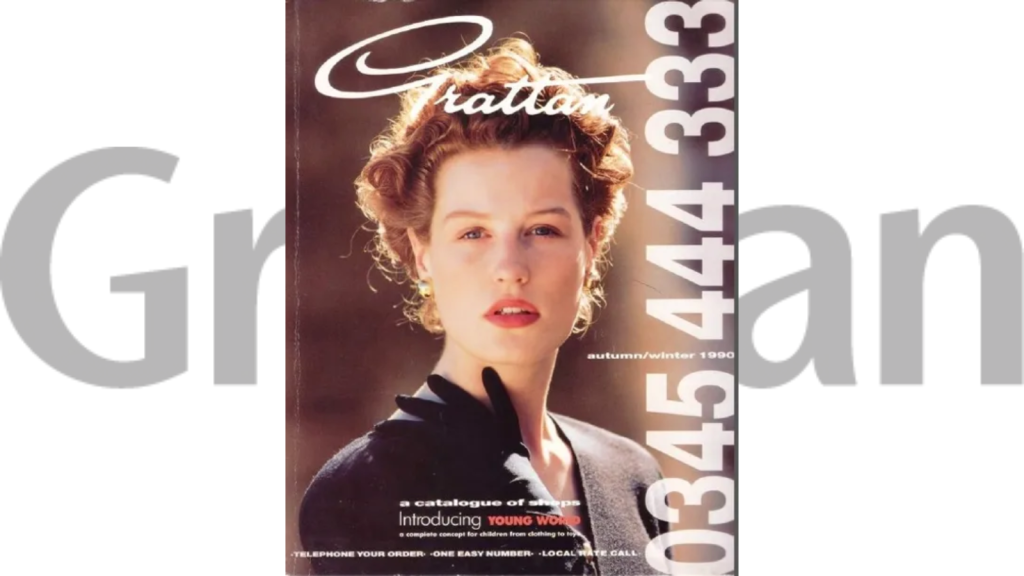
Grattan was another long-standing favourite in the world of British mail order. Known for its quality clothing and household items, it was particularly popular with families. The catalogue often featured special offers and credit options, making it accessible to a wide range of customers. Founded in 1912 in Bradford, Grattan played a significant role in establishing Yorkshire as a hub for mail order businesses in the UK.
Empire Stores
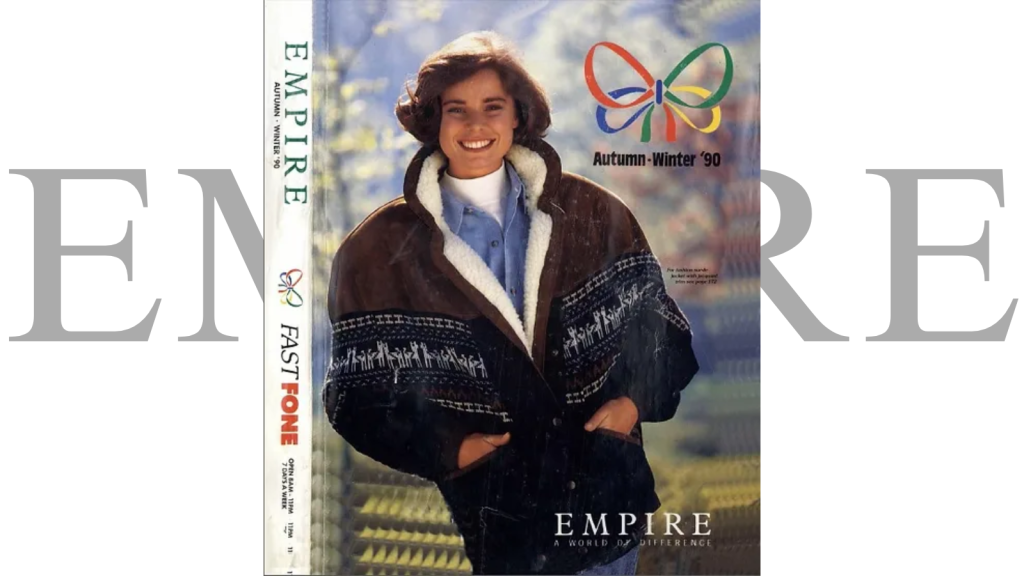
Empire Stores was a treasure trove of affordable fashion and home goods. Its pages were filled with everything from party dresses to practical workwear. The catalogue was known for its competitive prices and regular special offers, making it a hit with budget-conscious shoppers. Empire Stores was one of the first catalogues to introduce a points-based loyalty scheme, rewarding regular customers with discounts and gifts.
Great Universal
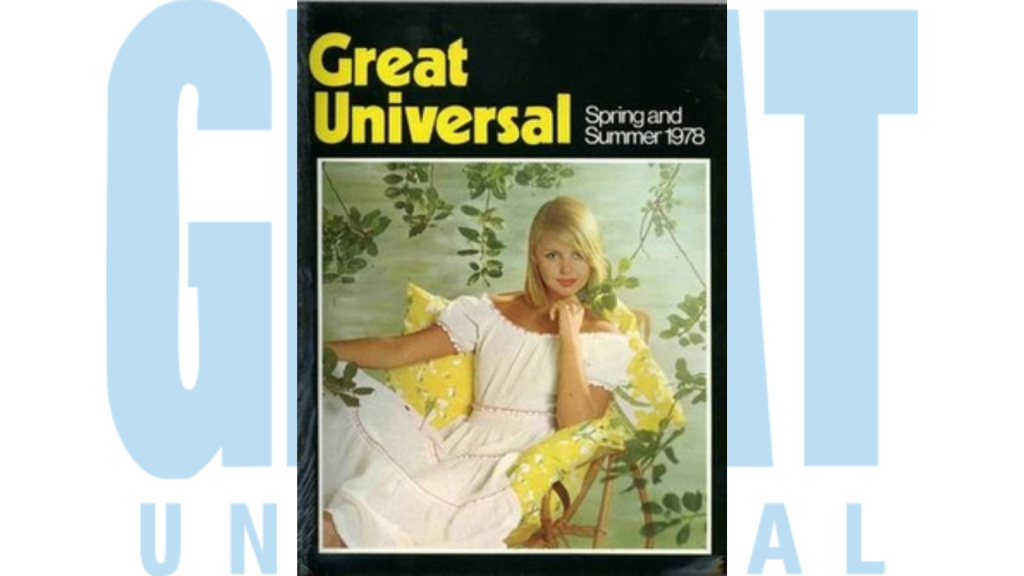
Great Universal, often simply called “GUS,” was a catalogue that seemed to have it all. From the latest electronics to fashionable clothing, it was a one-stop shop for many British households. The catalogue’s credit options made it particularly popular during tough economic times. GUS was also a pioneer in using computer technology for mail order processing, introducing its first computer system in 1958.
Freemans
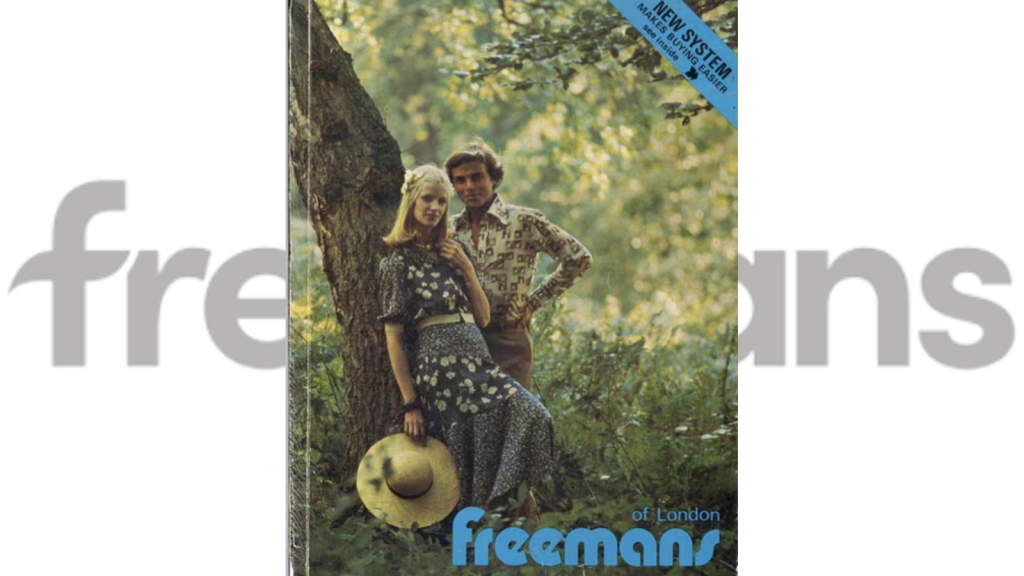
Freemans was a staple of British mail order shopping for over a century. Known for its wide range of products and competitive prices, it was a go-to for many families. The catalogue’s fashion pages were particularly popular, often featuring the latest trends at affordable prices. Freemans was founded in 1905 and was one of the first catalogues to offer a ‘buy now, pay later’ option, revolutionizing home shopping for many British families.
Marshall Ward
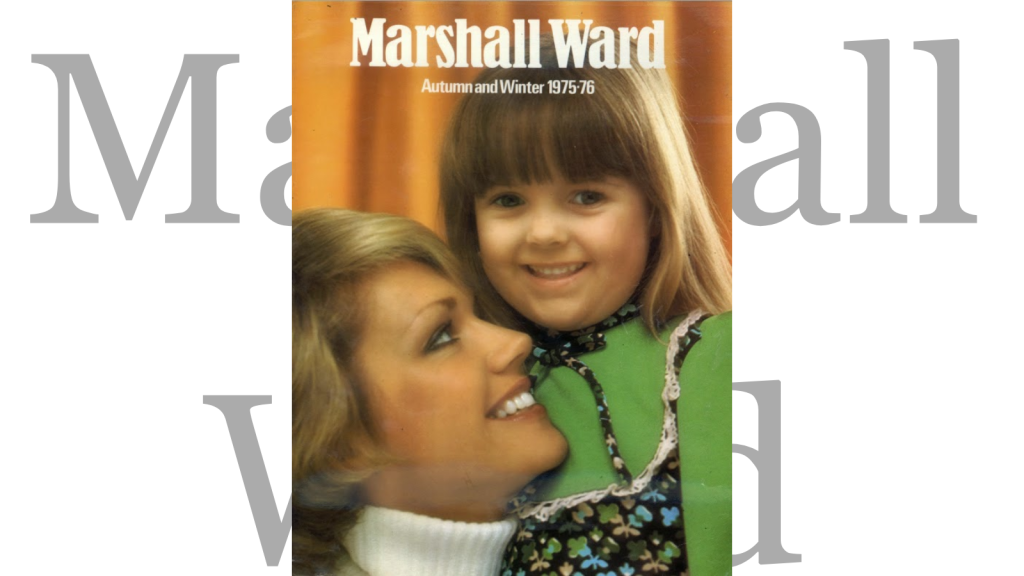
Marshall Ward was another beloved name in British mail order. The catalogue was known for its quality clothing and household items, often at competitive prices. Its pages were filled with everything from cozy knitwear to the latest kitchen gadgets. Marshall Ward was particularly noted for its excellent customer service, often going above and beyond to ensure customer satisfaction.
Innovations
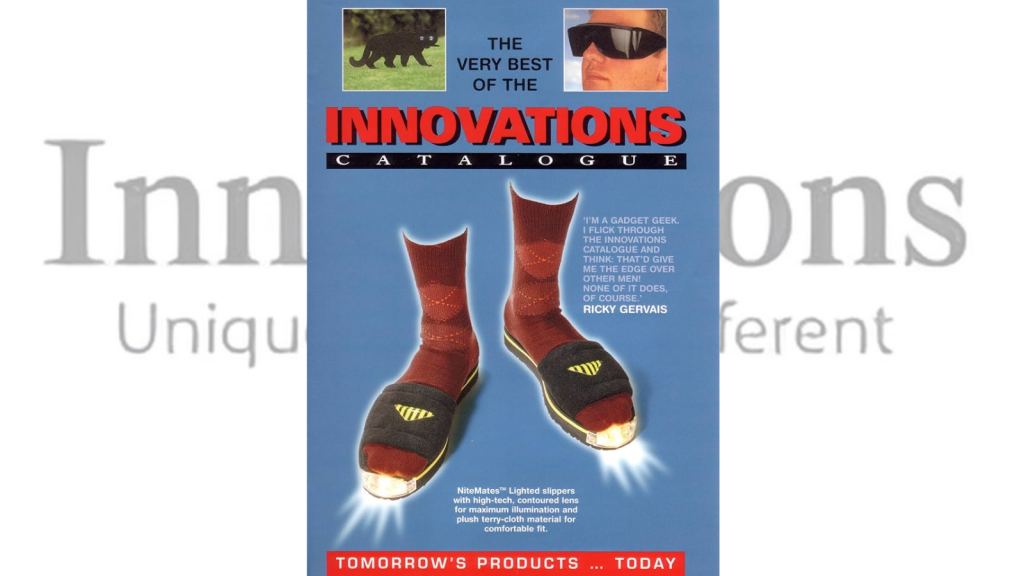
For those who loved gadgets and unique items, Innovations was the catalogue to have. It was filled with quirky inventions and novel products you couldn’t find elsewhere. From electronic shoe polishers to folding bicycles, Innovations always had something to spark curiosity. The catalogue was famous for its detailed product descriptions, often explaining the science or technology behind each innovative item.
Next Directory
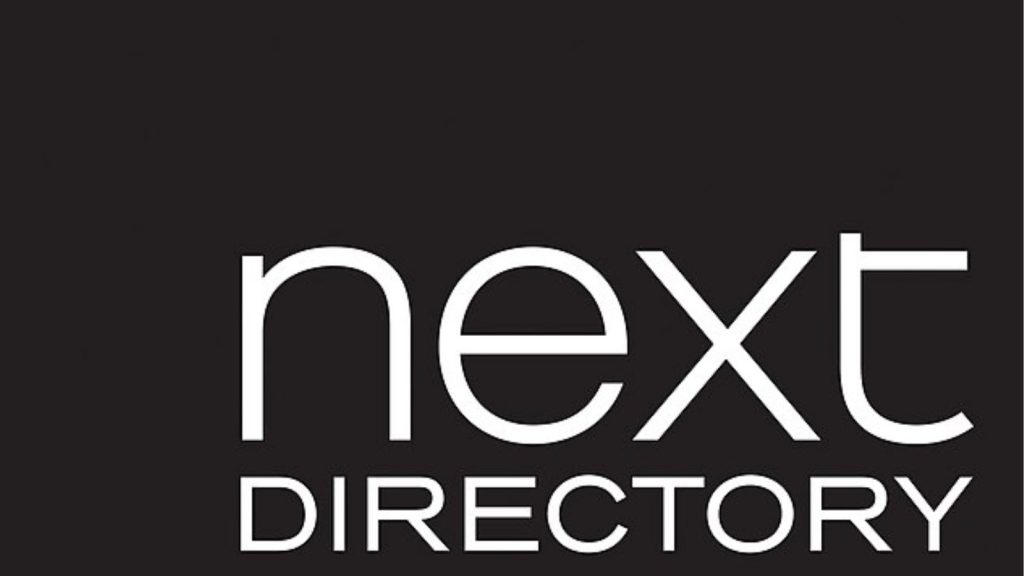
The Next Directory revolutionized catalogue shopping with its stylish photography and high-quality products. It was more like a fashion magazine than a traditional catalogue, making it a favorite among fashion-conscious shoppers. The directory’s arrival was often eagerly anticipated each season. Next Directory was also one of the first to offer a 24-hour delivery service, setting new standards for convenience in catalogue shopping.
Brighthouse
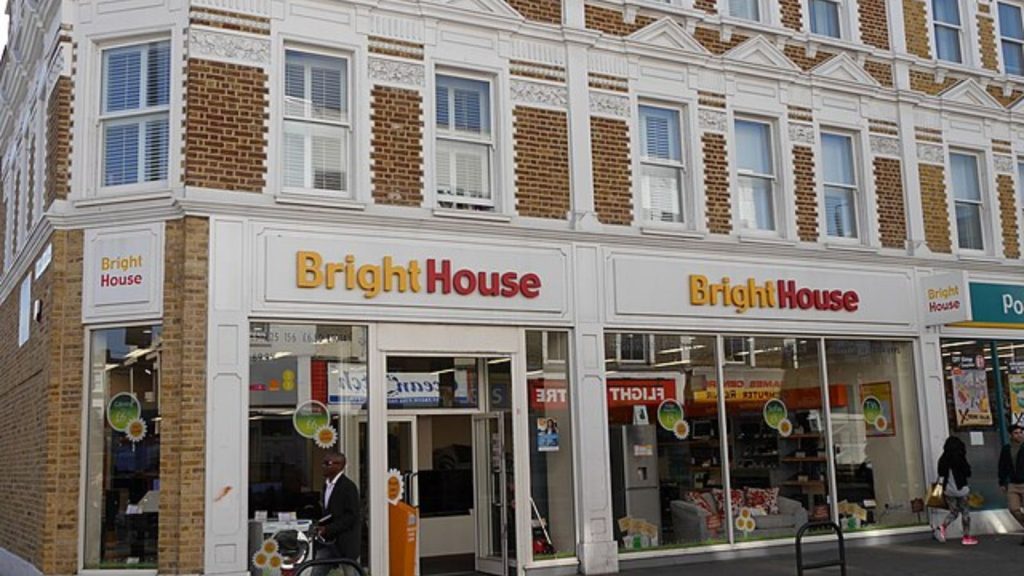
Brighthouse catalogue was known for its range of home electronics and furniture. It offered flexible payment options, making it popular with those looking to furnish their homes on a budget. The catalogue’s pages were filled with aspirational living room setups and the latest TV models. Brighthouse was unique in offering a ‘rent-to-own’ model, allowing customers to pay for items weekly or monthly over an extended period.
Studio
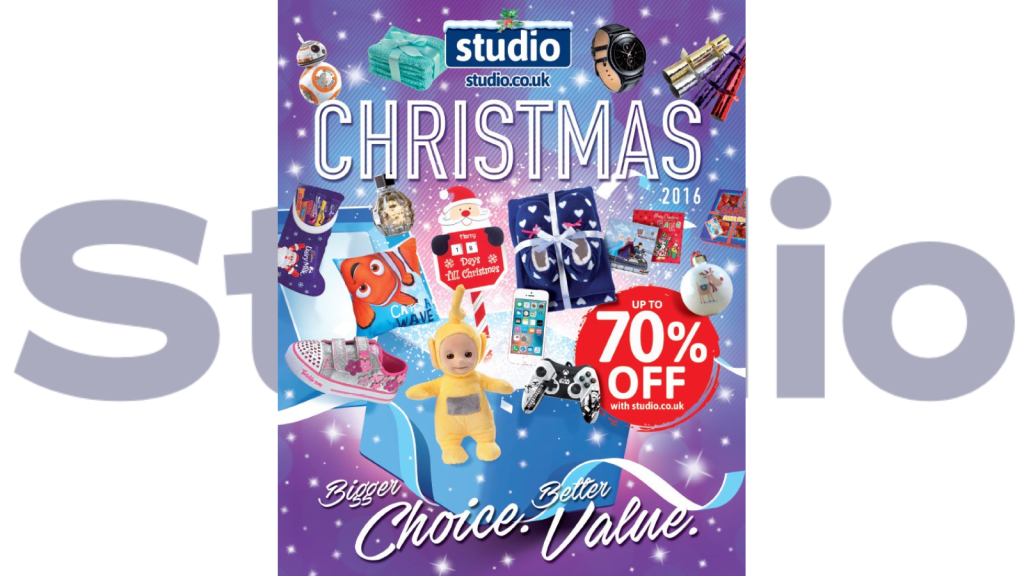
Studio catalogue was a favorite for its eclectic mix of products and competitive prices. From clothing to garden furniture, it offered a wide range of items for the whole family. The catalogue was particularly known for its seasonal specials and gift ideas. Studio was one of the first catalogues to embrace online shopping, launching its e-commerce site in the late 1990s.
Avon
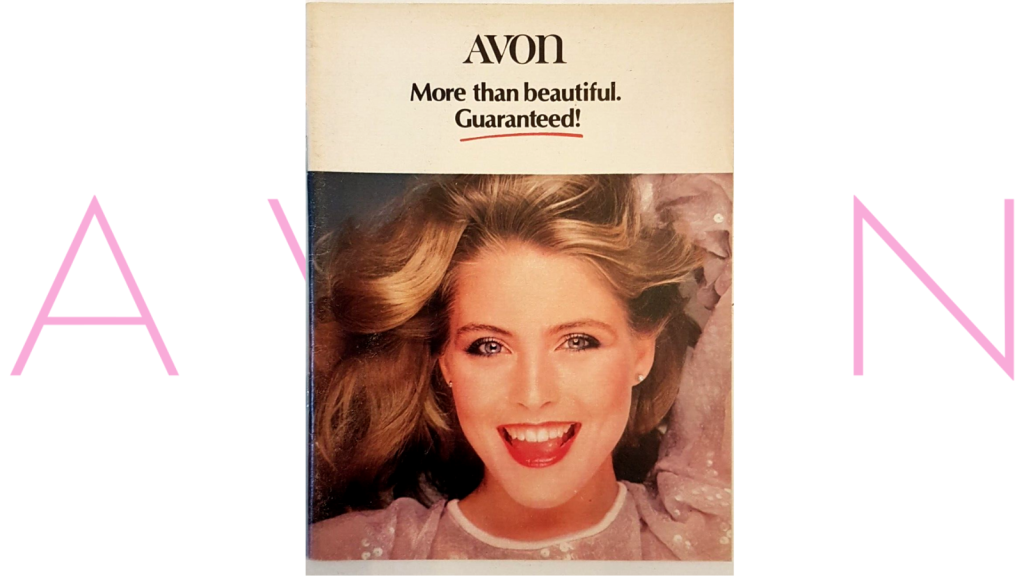
While primarily known for its door-to-door sales, Avon’s catalogues were a staple in many British homes. Filled with affordable cosmetics, skincare, and fragrances, the Avon catalogue was often passed around among friends and coworkers. It offered a chance to experiment with new looks without breaking the bank. Avon was also a pioneer in providing work opportunities for women, with its ‘Avon Lady’ representatives becoming a cultural icon.
Book People
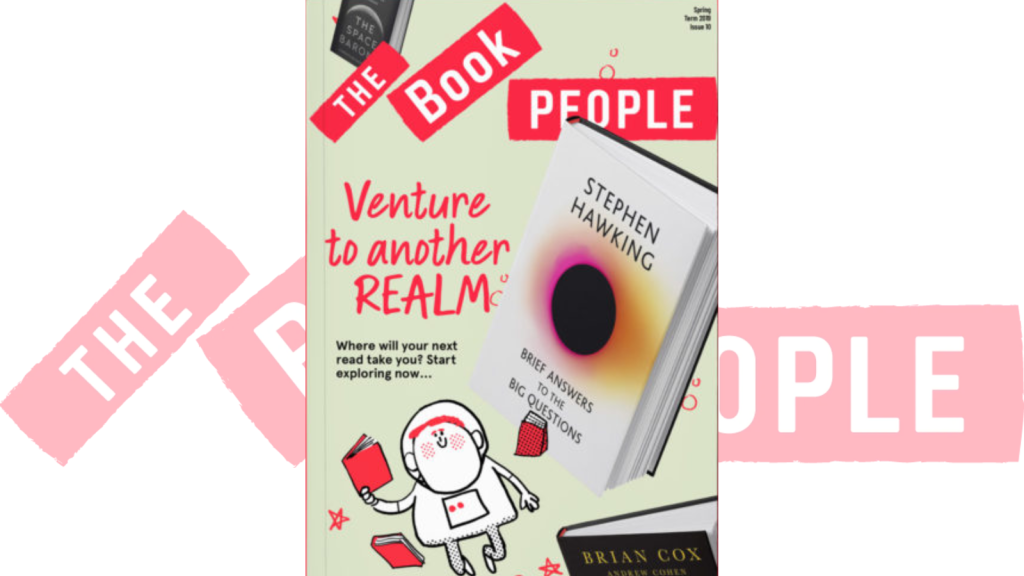
For book lovers, the arrival of the Book People catalogue was always exciting. It offered a wide range of books at discounted prices, from bestsellers to children’s favorites. Many families built their home libraries through this catalogue, eagerly awaiting each new edition. The Book People was founded in 1988 and quickly became known for its curated selections, often introducing readers to new authors and genres they might not have discovered otherwise.
Katy Willis is a writer, master herbalist, master gardener, and certified canine nutritionist who has been writing since 2002. She’s finds joy in learning new and interesting things, and finds history, science, and nature endlessly fascinating.

